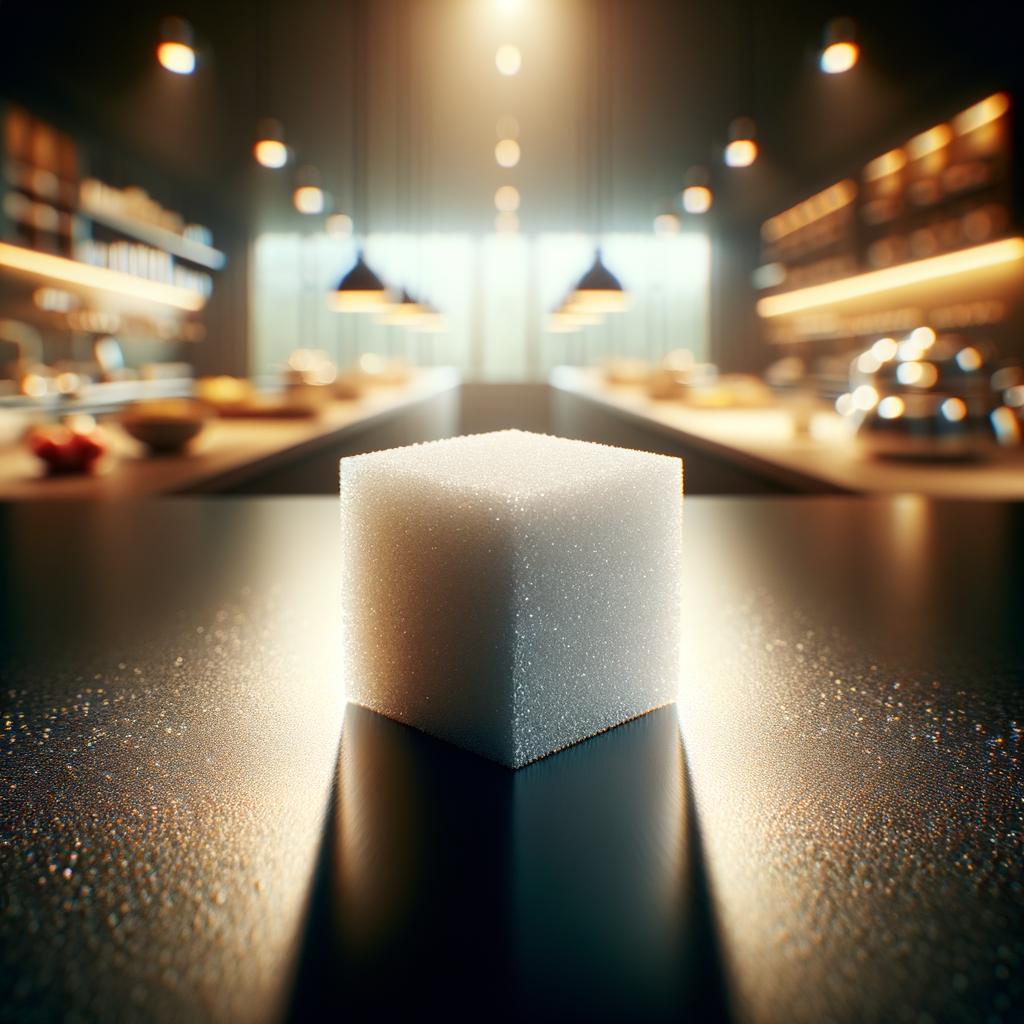Meet the humble sugar cube, a small but mighty ingredient that has sweetened our lives for centuries. Each cube is a compact, crystalline prism, typically measuring a petite 1 cm on each side. Its solid form is deceptively hard, dissolving into a sweet symphony once it meets a hot beverage or the human tongue. The flavor profile of a sugar cube is purely sweet, without the complex notes that other sweeteners might carry. Its unique characteristic lies in its form; the compactness and uniformity of a sugar cube set it apart from granulated sugar or other sweetening agents.
Sugar cubes are most commonly used to sweeten hot beverages such as coffee or tea, their compact size allowing for a controlled sweetness. In the culinary world, they are also used in baking, particularly in certain European pastries, and in cocktail-making, where they are often muddled with bitters for classic drinks like an Old Fashioned. Beyond the kitchen, sugar cubes are also used in a variety of non-culinary ways, such as in science experiments for kids, crafting, and even horse training.
The sugar cube has a romantic history that dates back to the 19th century. It was invented by Jakub Kryštof Rad, a Czech entrepreneur, who was moved by the sight of his wife injuring her hand while cutting a large lump of sugar. He designed a machine that could produce small, uniform cubes of sugar, revolutionizing the way sugar was consumed. Over time, the sugar cube has become a staple in many households, its use evolving from a luxury item to an everyday essential. There are also interesting stories associated with sugar cubes, such as their use in Absinthe rituals, where a sugar cube is placed on a special spoon and melted into the drink to counteract its bitterness.
While sugar cubes add sweetness to our lives, they are pure sucrose and do not contain any vitamins or minerals. Each sugar cube typically contains about 25 calories. While they are free of fat, protein, and fiber, they are high in carbohydrates, specifically simple sugars. Consuming sugar should be done in moderation, as excessive intake can lead to health issues like diabetes, obesity, and heart disease. Compared to other sweeteners, sugar cubes offer a more controlled way to sweeten due to their uniform size, but they lack the trace minerals found in alternatives like honey or maple syrup. However, the joy and comfort a perfectly sweetened cup of tea or coffee can bring is a magic all its own.

